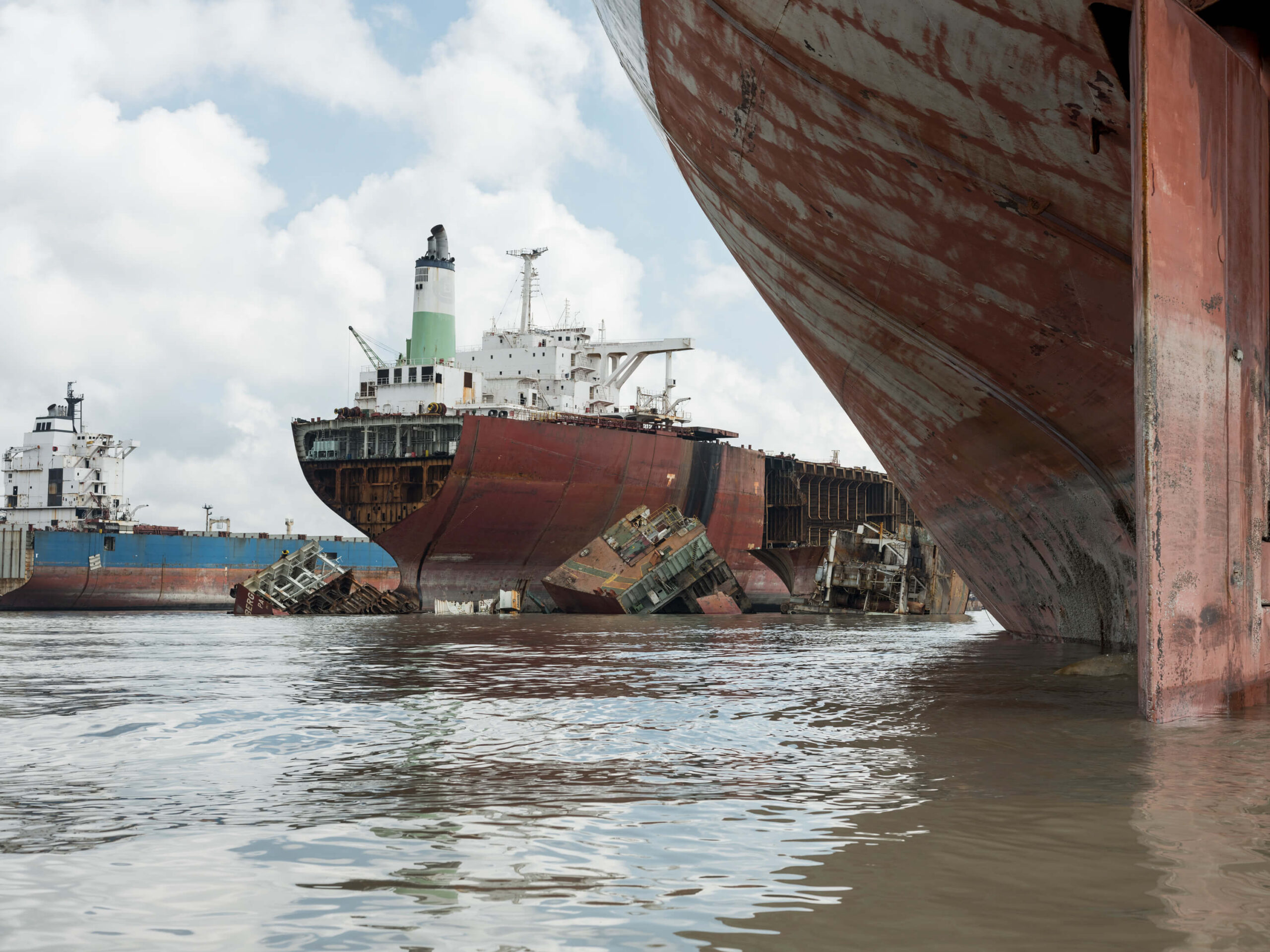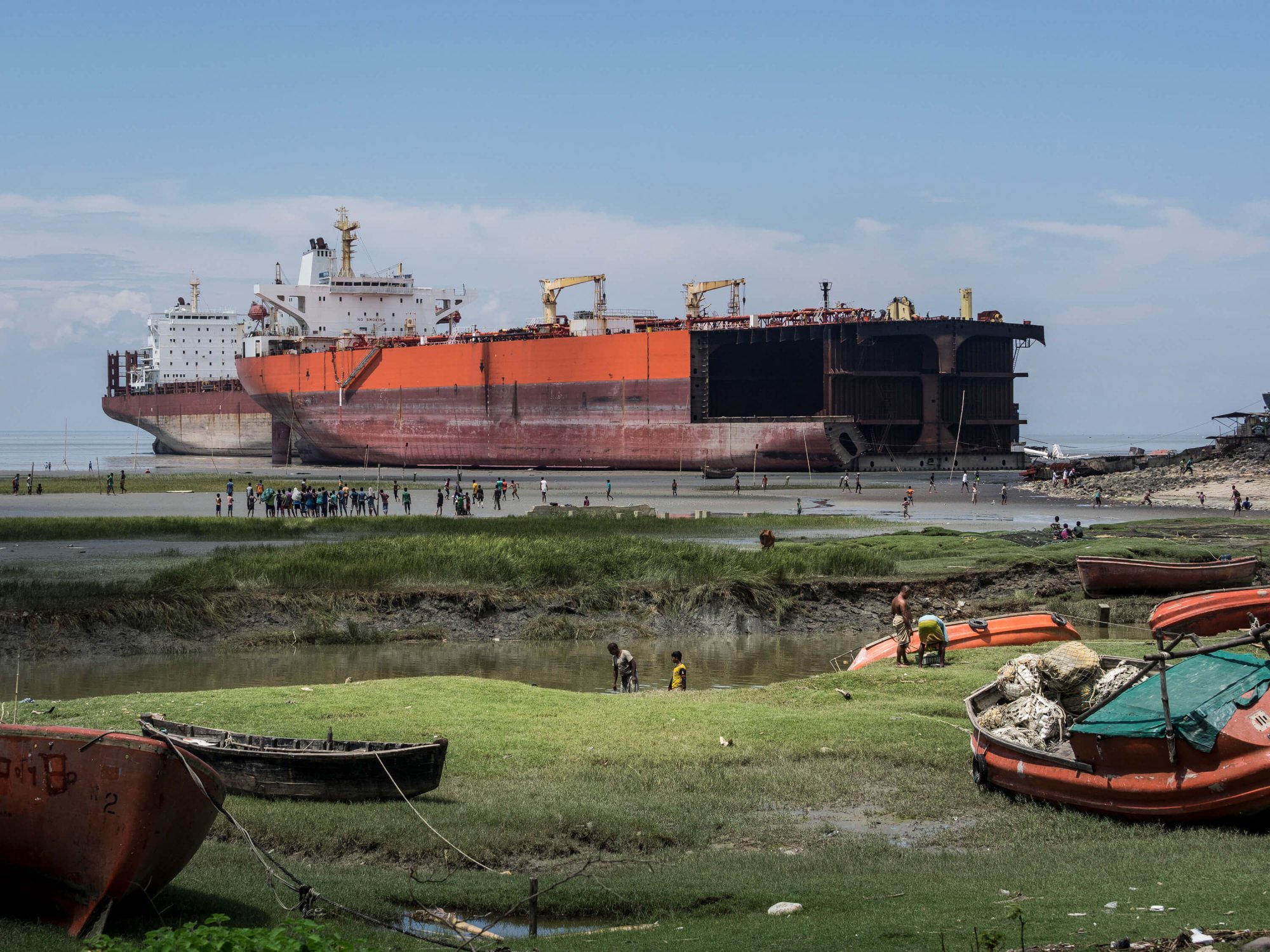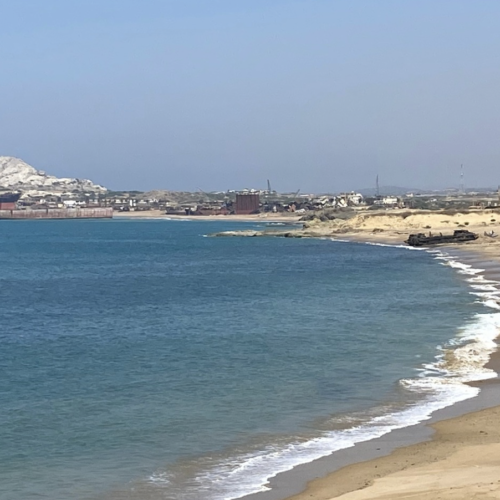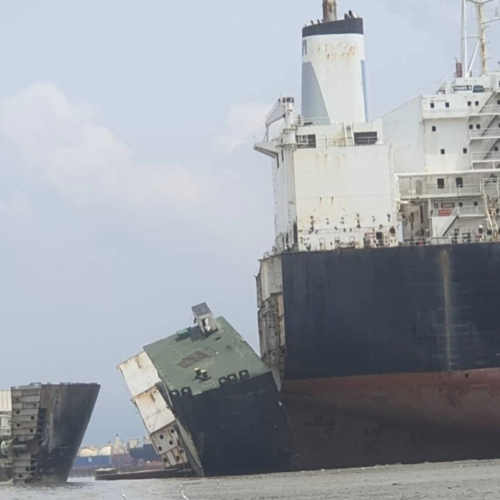BANGLADESH
Main Location: Chattogram
N°. Yards: around 184, of which about 70-80 are active
N°. Workers: 15.000
Recycling method: Beaching
The shipbreaking yards in Bangladesh are located just outside the major port city of Chattogram (formerly known as Chittagong). They stretch along the coastline of the Sitakund area for and have expanded from 3 kilometres in 1988 up to approximately 15 22 km in 2020 . .Some of the yards are set up on privately owned land, while the majority of companies lease government-owned land. The story says that shipbreaking started in Bangladesh in 1960 when a cyclone caused the standing of the Greek ship MD Alpine. Whilst activities increased considerably in the 1980s, shipbreaking was not officially recognised as an industry – and thus not regulated – before 2011.
Shipbreaking in Bangladesh is strongly criticized by both international and local NGOs due to its dirty and dangerous practices. Concerns include abysmal working conditions, fatal accidents, exploitation of teenage workers, and severe pollution of the marine environment as well as the dumping of hazardous wastes.
The coastal area of Bangladesh contains a rich biodiversity with several species being endemic to the region. However, the coastal environment of Sitakund, Chattogram is severely contaminated by various processes related to shipbreaking activities. In 2009, following litigation by Platform member organisation BELA, a land-mark decision by the Bangladesh Supreme Court ordered the closure of all shipbreaking yards in Chattogram as none held the necessary environmental clearances to operate. After only two months of closure, the yards re-opened with incomplete authorisations in hand and no change in practice. In 2016, the Supreme Court therefore issued a contempt rule against both the authorities and shipbreaking yard owners for continued breaches of the 2009 order. The case is still ongoing.
Despite laws existing in Bangladesh to protect both workers and the environment, these are poorly implemented due to weak enforcement capacity, or deliberately ignored as a result of industry pressure. End-of-life vessels are imported with fake certificates claiming that they are free of hazardous materials. As a consequence toxics are not properly detected and safely removed. The World Bank has estimated that between 2010 and 2030 Bangladesh will have imported 79.000 tons of asbestos; 240.000 tons of PCBs and 69.200 tons of toxic paints that originate from end-of-life ships. Since the Chattogram area remains void of storage and treatment facilities for hazardous wastes, these toxics are simply dumped or re-sold on the second-hand market and cause further harm to surrounding communities.
Many of the shipbreaking workers come from the Northwest of Bangladesh, a poverty-stricken area with very little industrial activity. There is a strong fluctuation of workers between the yards as most are employed on day-contracts and often return to their villages during the harvest season. Workers are forced to rent unsanitary and improper accommodation. They work long hours without holidays, and trade unions are prevented from effectively organising them. In 2018Since 2009, the Platform documented at least 19 249 workers who were killed and at least 10 284 who suffered severe injuries whilst breaking the massive ships that are beached in Sitakund. The causes of death at the shipbreaking yards are many, including suffocation, explosions, falls from great height and crushing due to falling parts of the ship. The hospital building set up by the Bangladesh Shipbreakers Association (BSBA) is operated as a private clinic and can only treat minor injuries. Many workers therefore succumb to their injuries on their way to the closest specialised hospital in Chattogram, the Chattogram Medical College Hospital. Injured workers moreover do not automatically receive financial support for necessary medical treatment.


RECOMMENDED READINGS
Latest News

Platform publishes South Asia Quarterly Update #43
Fifteen workers suffered an accident on South Asian beaches in the third quarter of 2025.
... Read More



